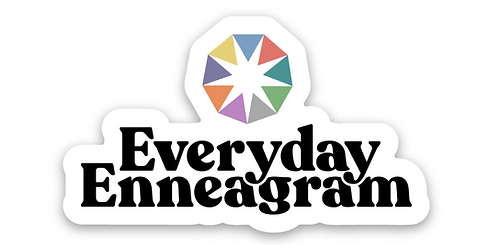

Welcome to Trauma Informed Enneagram
Hello, My name is Jen. Welcome, I am happy you are here. Learn a little more about me here
Most Common Questions:
-
WHAT IS THE ENNEAGRAM?
-
HOW IS THE ENNEAGRAM USEFUL?
-
WHERE DID THE ENNEAGRAM COME FROM?
-
WHY, THE ENNEAGRAM?
-
HOW DO I DISCOVER MY TYPE?
-
WHAT DO I DO NEXT?
WHAT IS THE ENNEAGRAM?
The Enneagram is a personality typing system the teaches the nine basic personality types. The diagram of the Enneagram is actually very quite simple: ENNEA: stands for nine and GRAM: stands for diagram or something drawn.
Each of the 9 types has its own unique style of relating in the world. Once type has been accurately determined, a person is able to illuminate unconscious motives, fears and ultimately the basic proposition of their type that acts as a filter to which they experience life.
HOW IS THE ENNEAGRAM USEFUL?
Through the lens of the Enneagram we can see that each type has very predictable patterns that powerfully influence the way each type thinks, acts and feels. Through this insight, we are then able to predict with great regularity future behavior, which then enables a person to choose differently based upon what they know about themself.
Once a person is aware and awake to their patterns, they are able to use conscious conduct as their greatest ally. This seemingly small shift in a persons life, mainly centered around awareness and knowledge, can greatly influence a persons life for the better. Once cognizant to their patterns, they are no longer living as a victim to their circumstances rather they are living very much on purpose. Living life with “intention” has new weight and meaning. No longer is it hyperbole “to live with intention” rather a person has the potential to live life by design.

WHERE DID THE ENNEAGRAM COME FROM?
Let's put things into perspective for a moment. Modern (western) psychology has been around for a little more than 200 years. Humans have been on the eatth of an estimated 6 millions years Before that there were spiritual healers, shamans, monks, philosophers, ancient prophets religious of otherwise of all kinds. If you had experienced emotional or physical trauma due to challenging life experiences, a person would have sought out help, just as they do today.
There is a lot of debate surrounding where the Enneagram came from. Who is the author? How could they have received so much specific insight regarding the human experience with such accuracy? The truth is we don't really know where the Enneagram came from. Bits and pieces of what we have now came from several known traditions and regions of the world. What we do know, is that it works and it works basically anywhere in the world, with any group of people of any background. Is it perfect? No. Does it work exactly, all the time? No. But it is profoundly specific and accurate most of the time. It is by far the most specific and accurate body of work to describe the lived human experience of any system or typology that I know.
WHY THE ENNEAGRAM?
The Enneagram Purpose and Potential
The purpose of the Enneagram is self-understanding and growing beyond the self-defeating dimensions of our personality, as well as improving relationships and growing in compassion for others.
The potential of experiencing yourself through the lens of the Enneagram is the beginning of a journey inside your inner self which amplifies your consciousness and facilitates personal growth.
HOW DO I DISCOVER MY TYPE?
There are a number of ways someone can learn their type.
1- study, read, watch, observe and learn. this is the best method, because theoretically "you know you the best," but also takes the longest in part because the enneagram is a big system and it takes awhile to not only learn the system, but to then apply what you are learning is another process.
2- employ a trained enneagram educator (LIKE ME:) or coach to conduct a formal typing interview with you.
THE FOUR PILLARS OF AWARENESS AND ACTION
The Enneagram stands on 4 pillars of awareness and action. Each of the 9 Enneagram types have a primary intelligence center and subsequently a repressed center. Learning the way you present yourself in the world based in all the areas of the human experience; emotional, mental, physical and spiritual are all essential for a robust study of personality using the wisdom of the Enneagram. This awareness and action is vital to the journey of becoming a whole human. The process of integrating, healing and assimilating all the attributes of being "you" is part of the human journey. The end goal, to be filled with empathy and compassion towards self and others and the utilizing conscious conduct to make the world a better place.
Emotional
Feelings, emotions, image oriented, thoughtful, highly relational.Aware of
sadness, sorrow, shame, grief, happiness, joy and
friendship
.
Mental
Thinking, introspection, logical, "in
their heads." Aware of fear, anxiety,
and critical thinking.
Physical
Body sensations,
awareness of the somatic
presentation of feelings and thoughts. Gut intuition, instincts, body movements.Aware of anger,
resentment
and rage.
Spiritual
Connected to divine presence. Deep knowing,
forgiveness,
authenticity,
compassion, empathy and humility.
GET IN TOUCH
